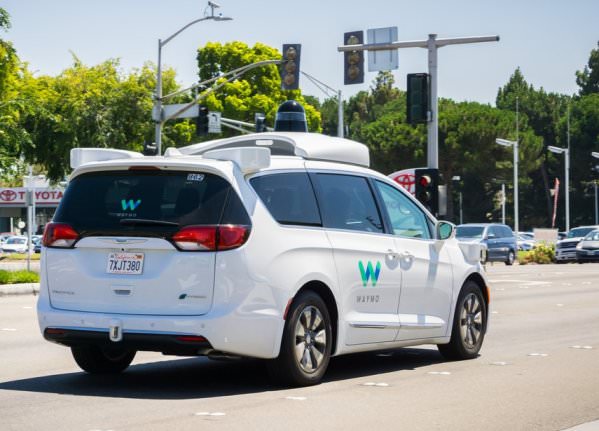Waymo is done by a system that softens the car in case of outrage
Waymo, the freelance car company, has just obtained a patent that could help save lives in case of a hit pedestrian. The system has a performance that seems to be drawn from a science fiction story: the car’s body reduces its rigidity only in the part where it is going to collide with a person.
The American company devotes the vast majority of its activity to the development of autonomous driving. For this reason, it is not surprising that their cars have sensors to spare to detect the pedestrian and act accordingly. At the time this occurs, the central computer sends an order that looses the cables that maintain the rigidity of a part of the vehicle. In this way, the outer panel can deform and absorb most of the impact.
How the system softens Waymo’s car
The merit of this system that softens the car is not only to react to an obstacle, but to differentiate between a person and inanimate objects that can damage the integrity of the car. In this area, Waymo for a long time has been working to do that its equipment capable of making this difference and many others like cyclists, motorcyclists or even a traffic agent giving signals (that was only looking for drivers of their tests). Apart from this, the applications of this technology could go even further because their cars would be able to react differently depending on the type of obstacle. It is not the same a motorcycle as a car, and of course, it is not the same as a car approaching 20 km/h than one at 100 km/h.
The patent for the car softening system was introduced in 2015 by Google’s autonomous driving division, and Waymo is now the owner. This change of hands is very understandable considering that both companies are subsidiaries of the same multinational and that much of the team of Waymo are the same people that were part of the extinct division of autonomous driving of Google.
The technological advances of Waymo
Waymo is one of the companies that have advanced more in the development of the technologies that allow a vehicle to circulate by itself. A good example of this is the report of the California Department of Motor Vehicles, the equivalent of the DGT of that area of the United States. According to this institution, Waymo is light years away from the rest of the brands in the number of km that run its vehicles without human intervention.
According to the document, which records data from tests of these brands until November 2016, their cars have managed to travel an average of 8,251 km without any person having had to take control. A very remarkable figure considering that BMW, which is the second brand in the ranking, has traveled 1,026 km, Ford 315 km, General engine 55 km and Nissan 45 km.
